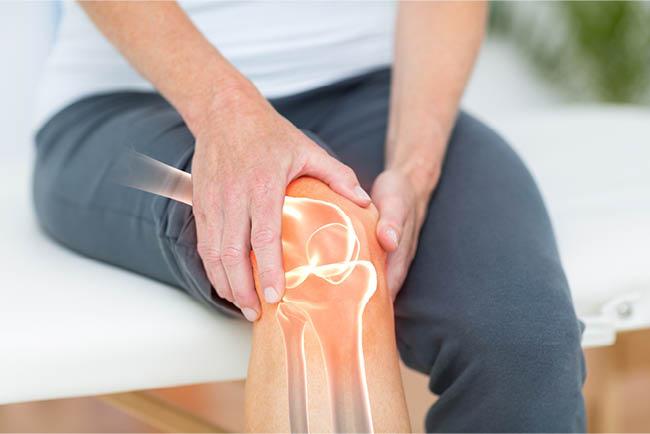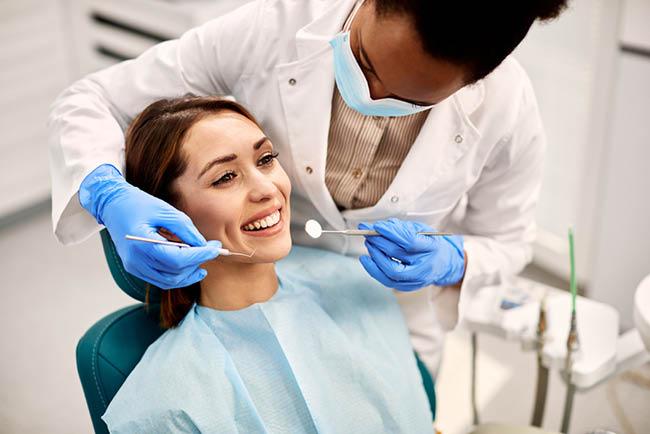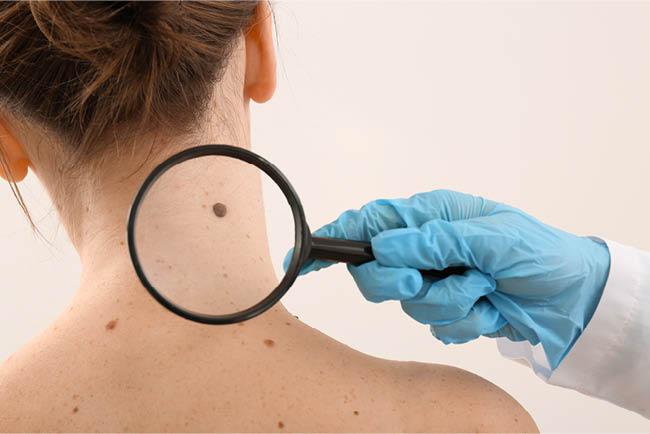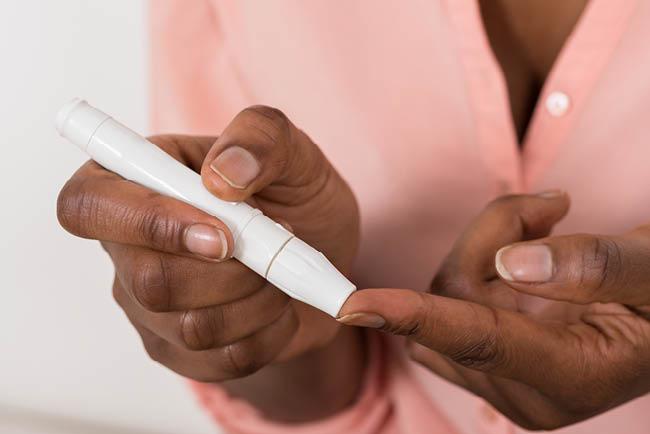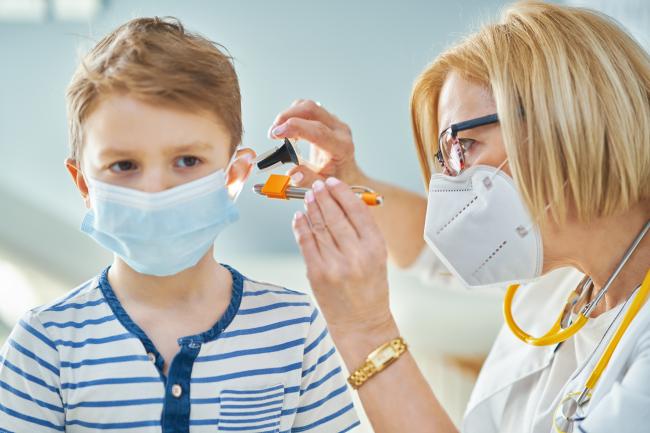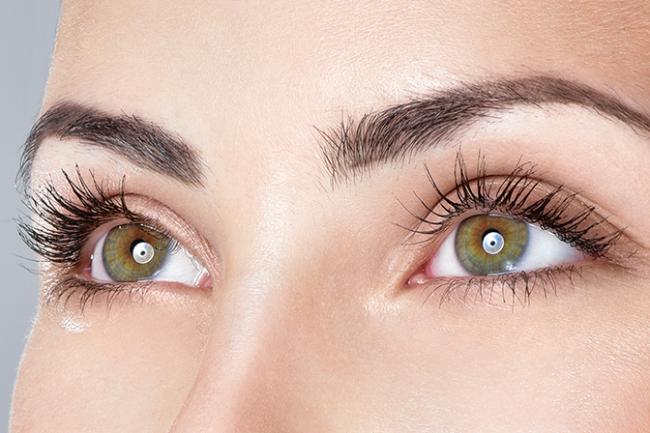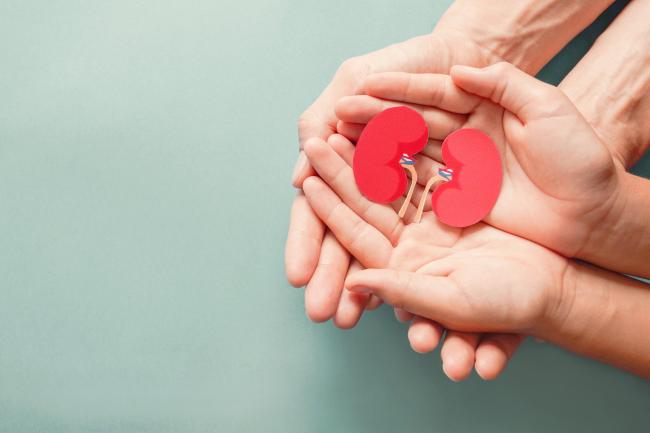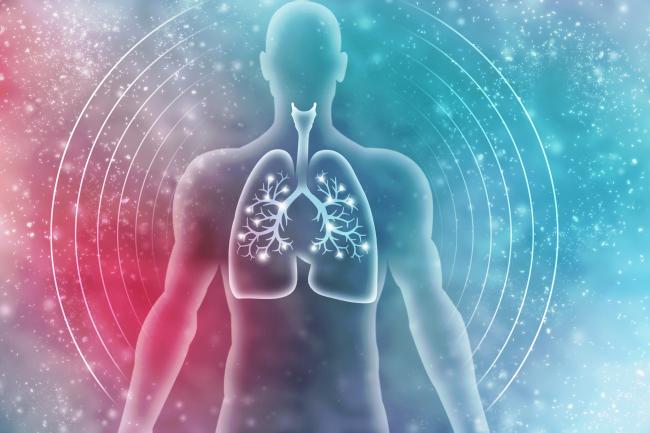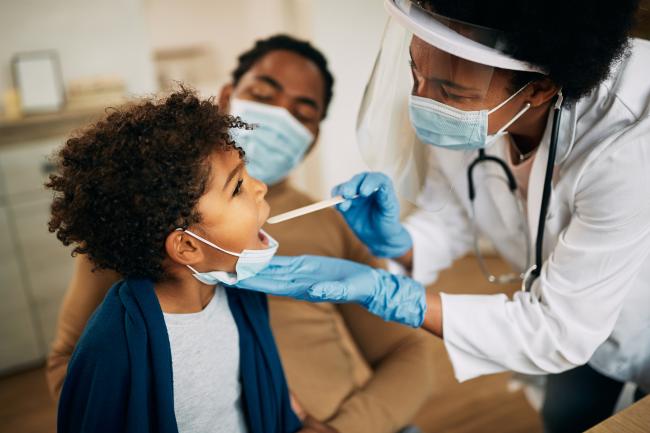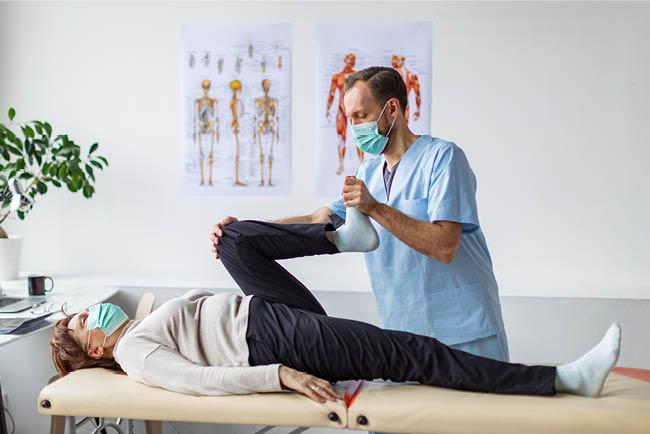Search Studies
Research studies are looking for volunteers just like you. Both healthy volunteers and participants with specific health conditions are needed to help answer important questions impacting the health of our friends and family. Join us to improve the health of others.
-
A Study of Mobile Health (mHealth), Breast Disease, and Lifestyle Modification
Official Title Mobile Health (mHealth), Breast Disease, and Lifestyle Modification: Developing a Grounded TheoryPurpose
The purpose of this study is to understand breast cancer survivors use of mobile health (mHealth) apps for lifestyle behavior change - eating a healthier diet, exercising more, dealing with stress, & stopping smoking. Interviews will last approximately 60 - 90 minutes.
Could this study be right for you?
- You have a diagnosis of breast disease or are a breast cancer survivor.
- You are age 18 or older
- You are a female
Age Range
18 and up -
A study on language impairment following a stroke
Official Title Laying the Groundwork for Personalized Medicine in Aphasia Therapy: Genetic and Cognitive Predictors of Restorative Treatment ResponsePurpose
This NIH-funded project will investigate patient-specific factors that may influence response to therapy for language impairment after stroke, or aphasia. Results from this work will assist with better estimation of prognosis for stroke survivors with aphasia, which could empower patients and families to make more informed health care decisions about how to pursue the most appropriate rehabilitation services based on their unique characteristics, such as genetics, cognitive skills, and brain structure after stroke.
Could this study be right for you?
Participants must meet the following criteria:
- Native English speaker
- Able to have an MRI
Age Range
18 and up -
A Study to Compare Medications in Patients with Advanced Parkinson's Disease
Official Title A Randomized, Double-Blind, Double-Dummy, Active-Controlled Study Comparing the Efficacy, Safety and Tolerability of ABBV-951 to Oral Carbidopa/Levodopa in Advanced Parkinson's Disease PatientsPurpose
The purpose of this study is to find out how well ABBV-951 works to control Parkinson's disease symptoms compared to oral Carbidopa (CD)/Levodopa (LD). The study is also seeking to test whether ABBV-951 is well tolerated in patients with Parkinson's disease.
Could this study be right for you?
- Male or female, age 30 or older
- Has not received deep brain stimulation, Carbidopa (CD)/Levodopa (LD) enteral suspension, or any other Parkinson's Disease (PD) medication as continuous daily infusion
- Subject does not have a history of significant skin conditions or disorders
- Subject does not have a recent (within 6 months before screening) history of drug or alcohol abuse
- Subject does not have a history or presence of psychotic episodes
- Subject does not have other clinically significant unstable medical conditions
- Subject must have a diagnosis of levodopa-responsive idiopathic PD
* other eligibility criteria to be discussed/reviewed with the study team
Age Range
30 and up -
A Study to Evaluate a Medication Used in Treating Hand-Foot Skin Reaction (HFSR) in Cancer Patients (NOVA-II)
Official Title A Study to Investigate OQL011 on VEGFR Inhibitor-Associated Hand-Foot Skin Reaction in Cancer Patients (NOVA-II)Purpose
Hand-Foot Skin Reaction (HFSR) is a common adverse event induced by Vascular Endothelial Growth Receptor Inhibitor (VEGFRi) treatment in cancer patients. The main purpose of this study is to evaluate the safety and efficacy of OQL011 compared to vehicle ointment in treating patients with moderate to severe VEGFRi-associated HFSR. This study will also identify an optimal dosage for Phase III study and explore the pharmacokinetics profile of OQL011 in HFSR patients.
Could this study be right for you?
- Patient must be age 18 years of age or older.
- Patient must have a confirmed cancer diagnosis for which VEGFRi treatment is indicated, and must be currently under VEGFRi-based anti-cancer therapy with stable dosage for ≥ 1 week.
- Patient on pain medications is allowed provided they have been on stable dosage in the past 1 week and is going to continue at the same dosage.
Age Range
18 and up -
A Study to Evaluate Continuous Positive Airway Pressure (CPAP) for Sleep Apnea in Pregnancy
Official Title A Randomized Trial of Continuous Positive Airway Pressure (CPAP) for Sleep Apnea in Pregnancy (SLEEP)Purpose
The purpose of this study is to understand how Continuous Positive Airway Pressure (CPAP)
for mild to moderate sleep apnea may affect hypertensive disorders of pregnancy and other
complications of pregnancy such as gestational diabetes.Could this study be right for you?
- No prior delivery at or after 20 weeks 0 days of gestation
- Pregnancy with only one fetus
- Gestational age at randomization between 14 weeks 0 days and 21 weeks 6 days
- Diagnosis with mild to moderate OSA as defined by an AHI score ≥ 5 and <30
Age Range
18 and up -
A Study to Evaluate Relationship Dynamics in Families of Children with ADHD and Their Opposite-Sex Siblings
Official Title Relationship Dynamics in Families of Children with ADHD and Their Opposite-Sex SiblingsPurpose
This study is being done to better understand relationship dynamics between children with ADHD, their siblings, and their parents. Our goal is to better understand how differences in family dynamics affect children with ADHD. Participants will be asked to fill out several self-report questionnaires and engage in a family conflict task. During several tasks, participants will have various physiological measures (e.g., heart rate, breathing rate, etc.) taken using electrodes placed on their body. Results of this study will be used to develop other studies and to inform future treatment and prevention programs.
Could this study be right for you?
We are recruiting children between 8 and 10 years old with an opposite sex sibling. In order to participate, families must meet the following criteria:
- Mothers must be willing to participate
- They must have a child between ages 8 and 10
- That child must have a sibling of the opposite sex that is within 2 years of their age
Age Range
6 and up -
A Study to Evaluate the Safety and Effectiveness of a Dietary Supplement Used in Treating COVID-19
Official Title Randomized Proof-of-Concept Trial to Evaluate the Safety and Explore the Effectiveness of a Plant Polyphenol for COVID-19Purpose
The purpose of this trial is to determine whether a commercially available dietary supplement may decrease the severity of patients with early COVID-19
Could this study be right for you?
Inclusion Criteria:
- Outpatients who test positive for infection with SARS-CoV-2
- Age 45 years and older
- Experiencing COVID 19 symptoms for 7 days or less, OR 72 hours of new respiratory symptoms
- Patient must have access to the internet or a smartphone to complete surveys
- English-speaking patients
Age Range
45 and up -
A Study to Examine Atropine for the Reduction of Nearsightedness (The CHAPERONE Study)
Official Title Microdosed Atropine for the Reduction of Pediatric Myopia Progression (The CHAPERONE Study)Purpose
The purpose of this study to test the safety and effectiveness of atropine 0.1% and atropine 0.01% eye solutions. These drugs are being tested to see if they slow the worsening of nearsightedness. Children who participate in this study will be asked to use their assigned study medication every night and willing to attend visits at The Ohio State University of Optometry 1 month after starting treatment. These visits will continue for 6 months until the duration of the study ends. This study will take place over a 4-year time period.
Could this study be right for you?
- Children aged 3 to < 13 years old.
- No previous use of medications related to myopia control.
- Glasses and/or contact lens prescription between -1.00 and -6.00 diopters.
Interested guardians who believe their child may be eligible should contact study coordinators to further determine eligibility.
Age Range
3 and up -
A Study to Examine Sex Differences in Pain Reports and Brain Activation in Older Adults with Alzheimer's Disease
Official Title Sex Differences in Pain Reports and Brain Activation in Older Adults with Alzheimer's DiseasePurpose
The purpose of this study is to examine how men and women with and without dementia might perceive and respond to pain or discomfort.
Participants may complete various questionnaires by phone or video conferencing once a week for up to 8 weeks with an optional MRI screening.
Could this study be right for you?
- Men and women aged 60 years or older
- Dementia or memory issues
Participants and their caregiver (if applicable) may complete only 1 day of the study, or they may complete as many as they would like for up to 8 days total.
Age Range
60 and up -
A Study to Examine the Early Development of Attention, Learning, and Memory During Childhood
Official Title A multi-year study of learning during childhoodPurpose
The purpose of this study is to investigate the early development of attention, learning, and memory.
The duration of the study will last over 4 years.
Participation in this study includes 4, 90-minute-long visits to the lab per year. During these 90-minute-long visits, your child will play 2-3 computerized games, designed to assess different aspects of their cognitive ability.
Could this study be right for you?
Children aged 4 years old only; children must be 4 years old at their initial visit to participate.
Age Range
4 and up -
A Study to Help Improve Symptoms of Gastroparesis (BREATHE)
Official Title Breathing Reduces Enteric symptoms and Anxiety promoting Therapeutic Healing Experience (BREATHE) – A Randomized Clinical Trial in Patients with Symptoms of GastroparesisPurpose
The purpose of this research study is to see if practicing mindful breathing daily can reduce stress, improve sleep
and possibly improve symptoms in patients with Gastroparesis.Gastroparesis is a condition characterized by symptoms such as nausea, vomiting, feeling excessively full after eating a little bit, bloating and abdominal pain. One or more of these symptoms can be present in a given patient.
Your participation throughout the study will last 6 weeks.
Could this study be right for you?
- At least 18 years of age
- Able to read and understand English
- Has symptoms of gastroparesis for at least 6 months (gastric emptying study is NOT required for inclusion)
Age Range
18 and up -
A Study Using the RejuvenAir® System for the Treatment of Moderate to Severe Chronic Obstructive Pulmonary Disease with Chronic Bronchitis (SPRAY-CB)
Official Title A Sham Controlled Prospective Randomized Clinical Trial of the RejuvenAir® System for the Treatment of Moderate to Severe Chronic Obstructive Pulmonary Disease with Chronic Bronchitis (SPRAY-CB)Purpose
The purpose of this study is to determine the safety and effectiveness of a device called the RejuvenAir® System, developed for patients with chronic bronchitis. The primary objective of this trial is to demonstrate the safety and effectiveness of the RejuvenAir® System for the treatment of adult subjects with a diagnosis of CB defined as COPD with classic 3 months of cough and sputum production for a minimum of 2 years who demonstrate ongoing symptoms of cough and significant mucus production. You will be in the study for approximately 36 months, including the screening period.
Could this study be right for you?
Inclusion Criteria:
- Males and females 40-80 years of age
- Must demonstrate daily cough and significant mucus production
- Have had a diagnosis of chronic bronchitis (CB) and chronic obstructive pulmonary disease (COPD) for a minimum of two years. (CB is defined clinically as chronic productive cough for 3 months in each of 2 successive years in a patient in whom other causes of productive cough have been excluded)
- Smoking history of at least 10 pack years
- Non-smoking for a minimum of 2 months prior to consent and agrees to continue not smoking for the duration of the study
Exclusion Criteria:
- Have had an acute pulmonary infection, exacerbation or pneumonia requiring medical treatment (with antibiotics and/or steroids) within 4 weeks prior of initially planned study bronchoscopy
- Diagnosis of Asthma
- You have had any type of transplant procedure
- Use e-cigarettes, vaping or inhaled substances not prescribed by a physician RejuvenAir® System
- You are pregnant, nursing, or planning to get pregnant during study
* This is not a complete list of either inclusion or exclusion criteria
Age Range
40 and up


